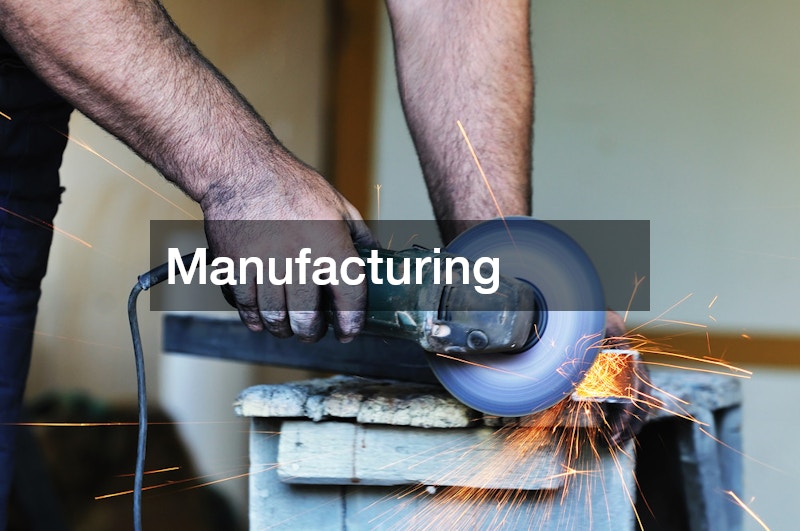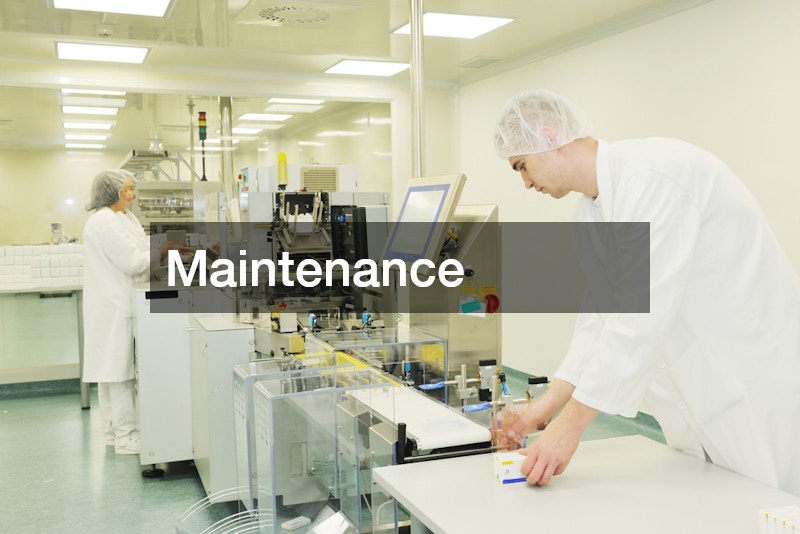
In today’s diverse economy, the concept of workforce skills has gained paramount significance across industries. Whether it’s the intricate processes of contract manufacturing, the precision required by tile roofing contractors, or the technical expertise demanded in software development, the workforce is vital in driving business success. Understanding these skills and their applicability in varied domains not only helps in enhancing productivity but also in personal career development. This article delves into different industries, exploring what workforce skills are essential and how they contribute to the organization’s overall growth. In particular, we will examine sectors such as manufacturing, roofing, locksmithing, sales, software development, mechanical skills, auto glass installing, recycling, HVAC installing, and maintenance. By the end of this discussion, readers will have a comprehensive understanding of the skills needed to thrive in these disciplines, as well as insights into how they can apply them in practical scenarios.
In addition to understanding the specific technical skills required in each industry, it’s equally important to emphasize the growing need for soft skills across the workforce. Regardless of whether one is involved in hands-on fields like tile roofing or auto glass installation, or more analytical sectors such as software development and sales, competencies like communication, problem-solving, and adaptability have become indispensable. Employers increasingly value these attributes, as they enhance teamwork, leadership, and the ability to navigate challenges effectively in a dynamic work environment.
Moreover, the rise of automation and advanced technologies has reshaped the landscape of workforce skills. Industries like HVAC installation, locksmithing, and recycling are witnessing the integration of new tools and systems, requiring workers not only to master technical proficiencies but also to stay updated with evolving technologies. This technological shift underscores the need for continuous learning and professional development, making adaptability a key skill for long-term success in any field. By acquiring a blend of technical know-how and interpersonal capabilities, professionals can remain competitive and contribute to their organization’s growth. Read on to learn about the necessary skills to develop a successful career working in a technical trade.
Manufacturing

Contract manufacturing involves producing goods by one company under the label or brand name of another company. It requires a specific set of workforce skills including precision, technical knowledge, and an understanding of production lines. In this domain, workers must be well-versed in the use of advanced machinery and quality control processes to maintain efficiency and consistency in production.
What are workforce skills in manufacturing? Workforce skills in this domain are not limited to technical abilities alone. They also encompass problem-solving skills, adaptability, and the ability to work in teams. With the constantly evolving technology, individuals must be prepared to learn new skills and adapt to changing manufacturing environments.
Alongside technical skills, human skills play a significant role. Effective communication, leadership, and management are essential for coordinating teams and maintaining a productive workflow. Contract manufacturing thrives on the collaboration of skilled workers who can manage stress, work under tight deadlines, and ensure that quality is not compromised at any stage of production.
Roofing
Tile roofing contractors require specialized workforce skills to meet the aesthetic and functional needs of clients. This includes not only manual dexterity and a solid understanding of construction principles but also creative problem-solving abilities. A skilled roofer must be capable of assessing various tile layouts and materials to ensure durability and visual appeal.
In roofing, what are workforce skills that stand out? Physical fitness and awareness of safety procedures are critical workforce skills for this role. Roofers must navigate heights safely and use various tools and equipment efficiently. Consequently, knowledge about different roofing materials and their installation processes is necessary for delivering high-quality service.
Workforce skills in roofing also include effective client communication and time management. Tile roofing contractors need to provide accurate project estimates and timelines while addressing customer concerns. Strong interpersonal skills enable them to build trust and reputation in a competitive industry.
Locksmithing
For a local locksmith company, workforce skills are fundamental to the service’s reliability and effectiveness. This profession entails intricate tasks such as key duplication, lock repair, and the installation of more advanced security systems, which require precise skills and attention to detail. Technical proficiency is key, as locksmiths deal with various locking mechanisms and must be adept at finding quick solutions to problems.
When exploring what are workforce skills in locksmithing, it’s essential to highlight analytical thinking and the ability to troubleshoot issues on the spot. Understanding different lock technologies and keeping up with industry advancements are paramount. Additionally, a sound knowledge of the building codes and standards helps locksmiths to provide legal and superior security solutions.
Customer service acumen is also paramount in this field. As locksmiths often work closely with customers in stressful situations, they must convey professionalism and empathy. Being a responsive and reliable local locksmith company fosters customer loyalty and bolsters the business reputation in the community.
Sales

The role of workforce skills in a local custom golf cart dealership extends beyond the product knowledge often associated with sales. Salespersons must master persuasive communication and active listening to understand customer needs and preferences. The ability to forge strong relationships with clients is crucial for driving sales and creating brand loyalty.
In the golf cart sales industry, what are workforce skills that prove beneficial? Sales representatives must possess negotiation skills to offer attractive deals while maintaining profitability. Familiarity with the technical aspects of golf cart models also enables them to address client questions effectively and present unique selling points.
Furthermore, adaptability is a significant workforce skill in this dynamic sector. Sales tactics and marketing strategies evolve rapidly; thus, staying informed about industry trends and technological advancements is essential. A successful local custom golf cart dealership thrives on its staff’s ability to blend core sales skills with updated market insights.
Software Development
In software development, workforce skills are multifaceted, encompassing both technical and soft skills. Developers need a profound understanding of programming languages, software frameworks, and troubleshooting techniques. However, technical acumen alone is insufficient; effective collaboration and communication are equally important in this industry.
Delving into what are workforce skills specifically advantageous in software development, problem-solving and critical thinking stand out. Software developers frequently encounter complex challenges that require innovative solutions. They must leverage logical thinking and creativity to design efficient, user-friendly software applications.
Soft skills, such as teamwork and time management, are indispensable in the collaborative development environment. Developers often work in agile teams and must coordinate tasks and project timelines. Thus, possessing robust interpersonal skills enhances their ability to meet project goals and deliver quality software products within stipulated deadlines.
Mechanical Skills
When it comes to commercial metal door installation and maintenance, workforce skills are pivotal for precision and safety. This role demands a robust understanding of construction principles and the ability to operate specialized tools. Technical knowledge in reading and interpreting blueprints, alongside hands-on mechanical skills, ensures accuracy during door installation processes.
Exploring what are workforce skills in this domain, attention to detail and problem-solving capabilities are crucial. Installers must assess onsite situations and make adjustments to meet specific structural requirements. Additionally, mechanical aptitude and dexterity are essential for executing tasks like hinge alignment and lock installations effectively.
Moreover, customer service skills enhance client interaction and satisfaction. Providing clear estimates and explanations about installation procedures and maintenance guidelines fosters client trust. Building lasting relationships with clients can lead to repeat business and positive word-of-mouth for practitioners specializing in commercial metal door services.
Auto Glass Installing

Auto glass repair is a specialized area that heavily relies on a set of workforce skills tailored to precision and safety. Installers must carry out meticulous inspections to determine the extent of damage and recommend appropriate repair solutions. This requires understanding of different glass types and repair techniques available within the industry.
In investigating what are workforce skills vital in this discipline, technical proficiency is paramount. Installers need to master various adhesive applications and techniques to ensure a secure and enduring bond. Additionally, manual dexterity and mechanical skills are required for handling and installing heavy glass components safely.
Communication skills are equally important for auto glass installers, as explaining repair options and safety information to customers is part of the job. High levels of customer service ensure clients are fully informed and satisfied with the outcomes, thereby enhancing business reputation and customer retention.
Recycling
Metal recycling businesses play a critical role in sustainable practices and environmental conservation, with workforce skills being the backbone of their operations. Workers in this industry must understand the sorting processes, handling various metal types and the efficient operation of recycling machinery. Technical know-how and the ability to operate safely in industrial environments are key workforce skills in recycling.
For those curious about what are workforce skills in recycling, it is crucial to have knowledge of market demands and industrial trends related to metals. Awareness of environmental regulations and recycling standards is also important. With constant emphasis on sustainability, innovations and improvements in recycling processes demand workforce adaptability and eagerness to learn.
Besides technical competencies, teamwork and communication are essential for coordinating activities and ensuring effective processes. Recycling involves various steps where collaboration between team members is vital for achieving maximum efficiency and meeting environmental goals. Promoting a culture of responsibility and safety within the workplace further supports a metal recycling business’s success.
HVAC Installing
When focusing on ductless HVAC mini-splits installation, one cannot overlook the indispensable need for workforce skills. Technicians require in-depth knowledge of HVAC systems to conduct installations and maintenance efficiently. Understanding the dynamics of heating and ventilation is crucial for ensuring systems operate effectively and safely.
Exploring what are workforce skills beneficial in HVAC, technical capabilities such as electrical proficiency and system troubleshooting are vital. Installation involves the careful handling of refrigerants and electrical components, demanding precise mechanical skills from professionals. A keen eye for detail guarantees that each installation adheres to stringent safety and performance standards.
Furthermore, strong communication abilities bolster the client’s understanding of system functions and maintenance requirements, enhancing customer service. Being able to articulate technical intricacies in accessible language develops trust between the technician and the client, making it integral to successful ductless HVAC installations.
Maintenance

Swimming pool maintenance encompasses a variety of services that require a range of workforce skills. Technicians must have a firm grasp of water chemistry, equipment operation, and repair techniques. They should be adept at using testing kits, handling chemicals safely, and implementing technological solutions for pool management.
As we ponder what are workforce skills in swimming pool maintenance, the ability to diagnose and troubleshoot issues promptly stands out. Maintaining water quality, filter systems, and pool fixtures involves constant vigilance and timely corrections to ensure safety and prolonged usability of the facilities.
Customer interaction is a critical component of successful maintenance services. Providing reliable service and clear communication regarding pool upkeep enhances client satisfaction. Establishing strong relationships with customers fosters trust in service providers and promotes ongoing business in the swimming pool maintenance industry.
Understanding what workforce skills are is pivotal for all sectors. Each industry, from contract manufacturing to software development, presents a unique set of skills essential for success. Through technical proficiency and human skills like communication and adaptability, workers can enhance both personal careers and organizational growth. This comprehensive exploration across industries highlights the need for continuous learning and skill development to meet evolving market demands. As technology and methodologies advance, workforce skills remain a core driver for innovation and excellence across diverse domains.
Ultimately, fostering these skills results in increased productivity, enhanced service delivery, and improved customer satisfaction. Organizations that recognize and invest in workforce skills at all levels reap lasting benefits, securing competitive advantages and facilitating sustainable business practices. Leaning into this knowledge empowers individuals and companies alike to navigate the complexities of modern industries effectively, adapting to new challenges and opportunities as they arise. By prioritizing both technical and interpersonal capabilities in workforce skills, businesses can create a resilient and adaptable workforce. This adaptability enables them to stay ahead in an ever-changing market landscape, positioning themselves for long-term success and growth.
